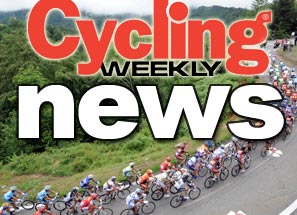UCI hails Pellizotti ban as 'major step forward' in doping fight


The Union Cycliste Internationale (UCI) has hailed the Court of Arbitration for Sport's decision to ban Italian riders Franco Pellizotti and Pietro Caucchioli as a "major step forward in the anti-doping fight".
Pellizotti and Caucchioloi were suspended due to irregularities in their biological passports - the UCI's anti-doping system that monitors the make-up of riders' blood and urine throughout the year. Adverse levels or irregularities in a rider's values - such as haematocrit or hormone levels - could indicate the use of banned performance-enhancing drugs or blood doping techniques.
"The UCI expresses its entire satisfaction that the quality of the work carried out by its anti-doping and legal services is acknowledged by these CAS decisions," the UCI said in a statement issued on Wednesday.
"It would also like to thank the World Anti-Doping Agency (WADA) for its support since the launch of the biological passport and the assistance it has provided, particularly with the management of cases arising from this innovative tool.
"The decisions announced by CAS yesterday are a major step forward in the anti-doping fight: they confirm the validity of the biological passport as an essential instrument in the fight against doping, which will most certainly become part of the arsenal of other international sporting federations that wish to draw on the UCI's experience.
"The decisions also reinforce the UCI's determination to continue its uncompromising policy of many years in the fight against doping and to continually improve its anti-doping measures."
Pellizotti's case had brought the controversial biological passport system into doubt - the 2009 Tour de France king of the mountains was provisionally suspended in May 2010 by the UCI on the basis of irregularities in his blood samples, but was later acquitted by the Italian anti-doping tribunal.
Get The Leadout Newsletter
The latest race content, interviews, features, reviews and expert buying guides, direct to your inbox!
The UCI subsequently lodged an appeal with CAS to uphold the two-year ban, and CAS ruled in the UCI's favour.
It's a landmark case since neither rider directly failed a test for a specific banned substance, but CAS assessed that the evidence produced by the biological passport system was sound enough to enforce a ban.
Pellizotti, however, has been less than impressed with CAS's decision to suspend him for two years - he has now said that he's quitting cycling for good.
Related links
Pellizotti's two-year ban upheld
October 2010: Pellizotti acquitted by Italian Olympic Committee
Pellizotti out of the Giro due to biological passport findings
Pellizotti faces two year ban for bio passport anomaly
Pellizotti questions biological passport methods

Thank you for reading 20 articles this month* Join now for unlimited access
Enjoy your first month for just £1 / $1 / €1
*Read 5 free articles per month without a subscription

Join now for unlimited access
Try first month for just £1 / $1 / €1

Nigel Wynn worked as associate editor on CyclingWeekly.com, he worked almost single-handedly on the Cycling Weekly website in its early days. His passion for cycling, his writing and his creativity, as well as his hard work and dedication, were the original driving force behind the website’s success. Without him, CyclingWeekly.com would certainly not exist on the size and scale that it enjoys today. Nigel sadly passed away, following a brave battle with a cancer-related illness, in 2018. He was a highly valued colleague, and more importantly, an exceptional person to work with - his presence is sorely missed.
-
 FDJ-Suez, SD Worx-Protime, Lidl-Trek confirmed for Tour of Britain Women as strong list of teams announced
FDJ-Suez, SD Worx-Protime, Lidl-Trek confirmed for Tour of Britain Women as strong list of teams announced18 teams set to take part in four-day WorldTour stage race
By Tom Thewlis
-
 Cyclists could face life sentences for killing pedestrians if new law passed in England and Wales
Cyclists could face life sentences for killing pedestrians if new law passed in England and WalesReckless cycling currently carries a maximum two-year jail term
By Tom Thewlis